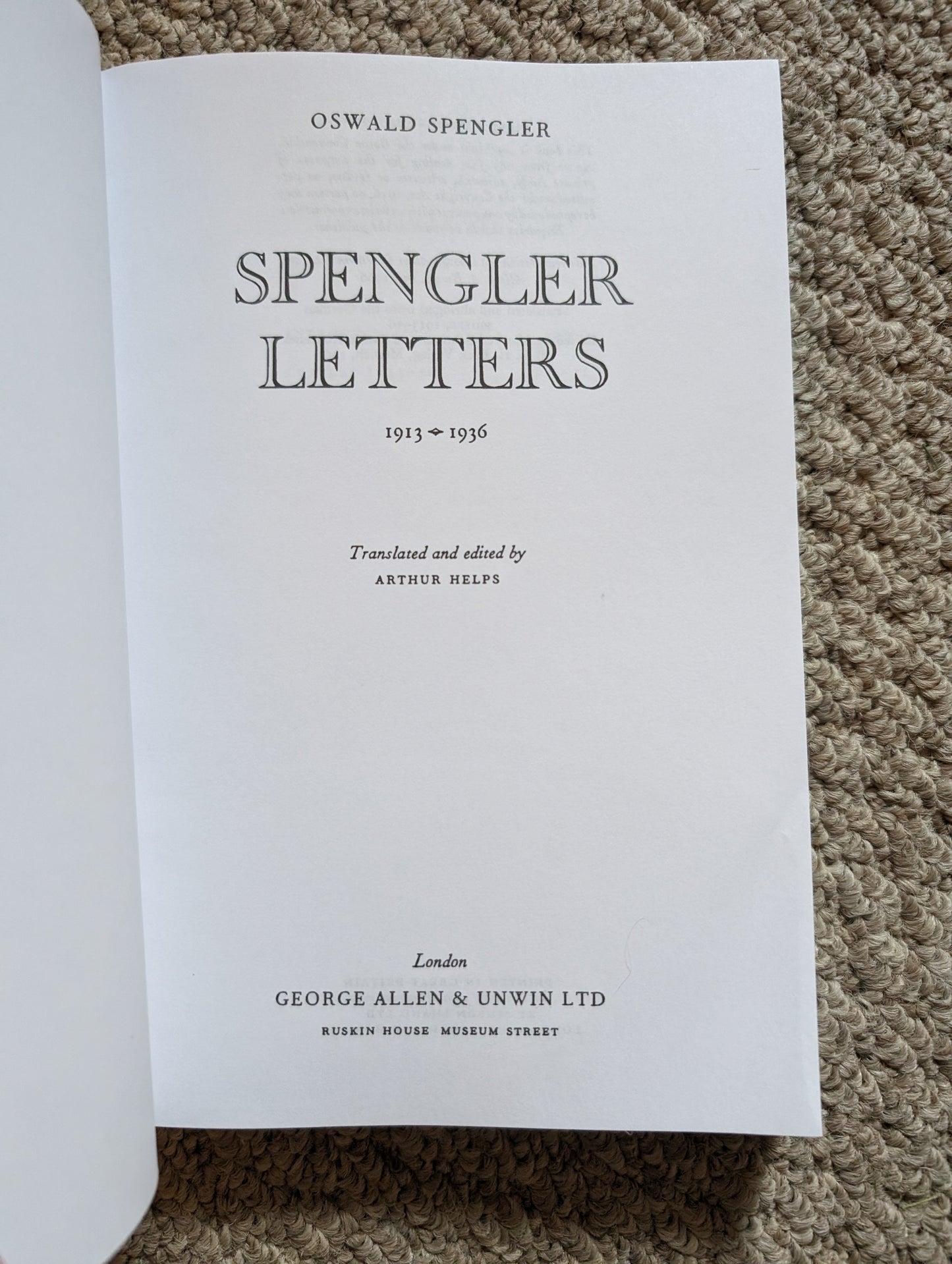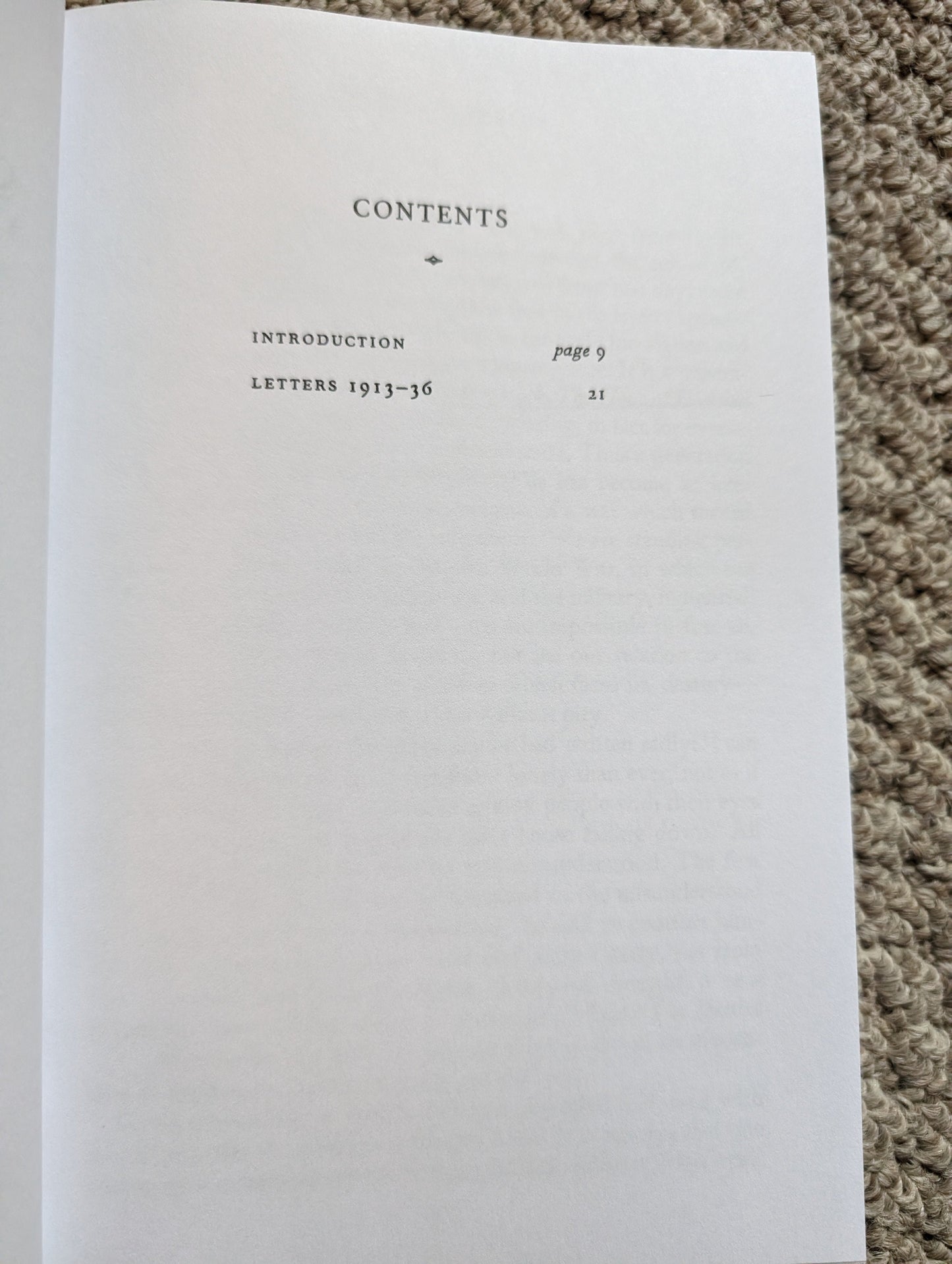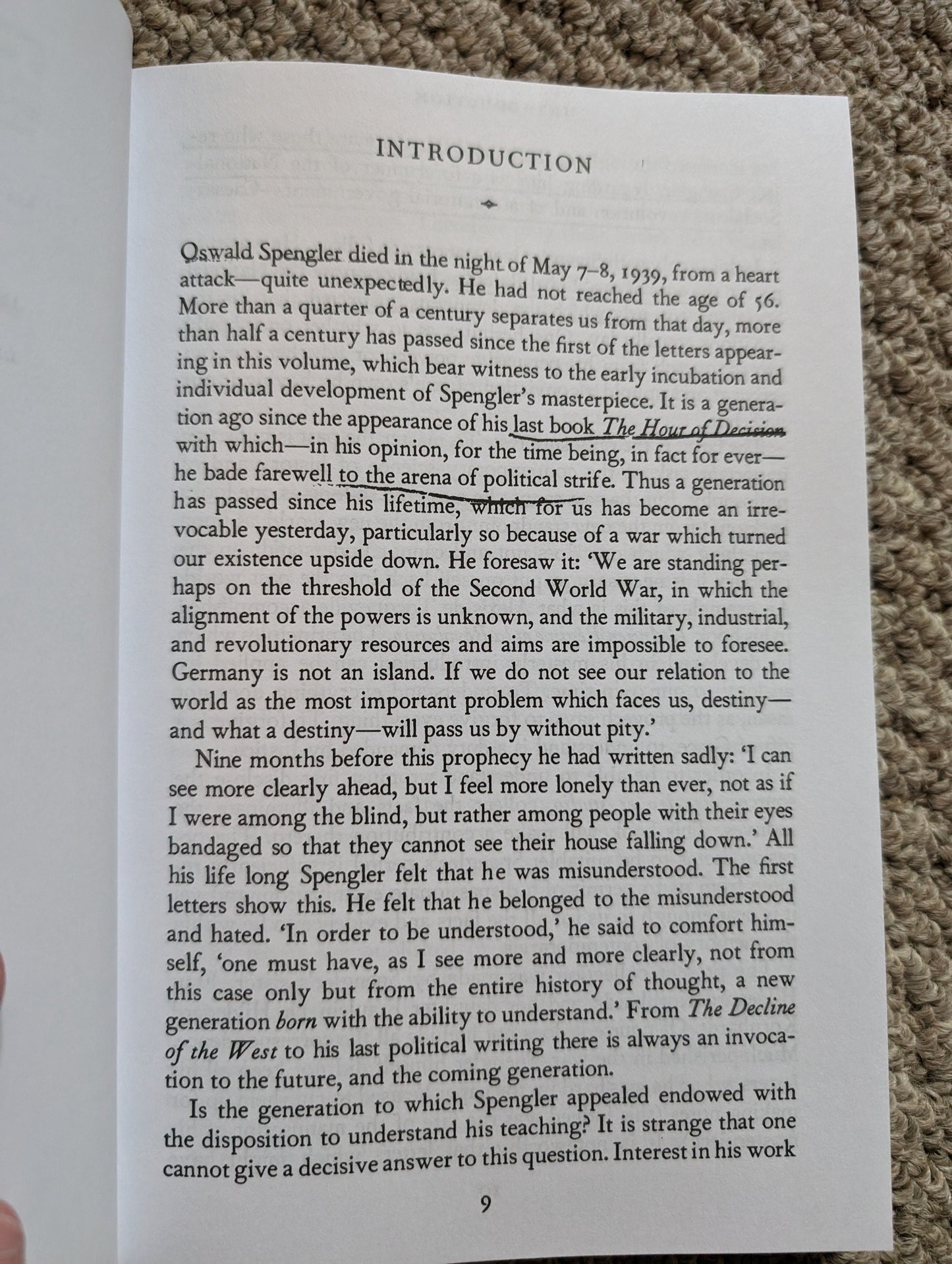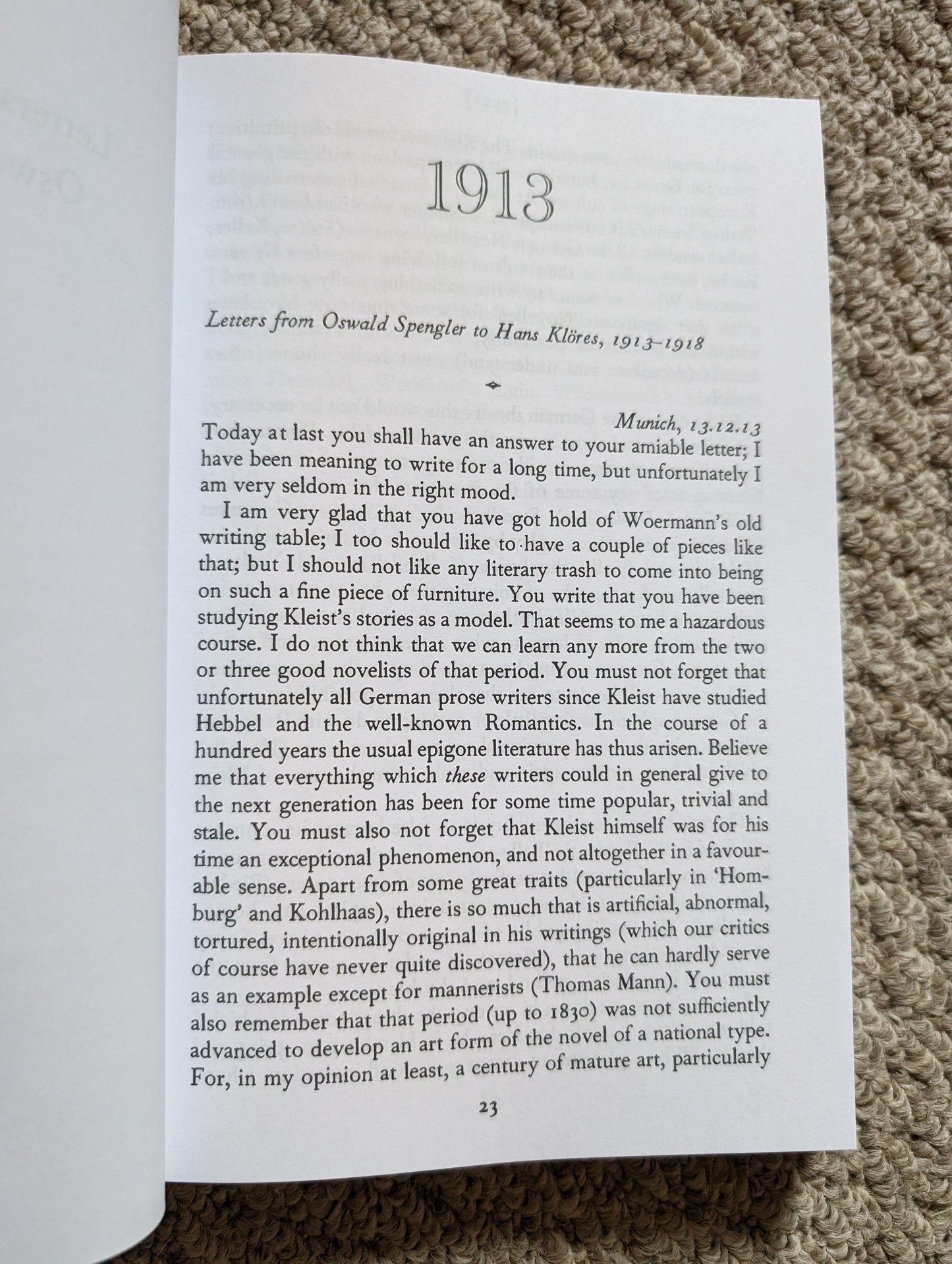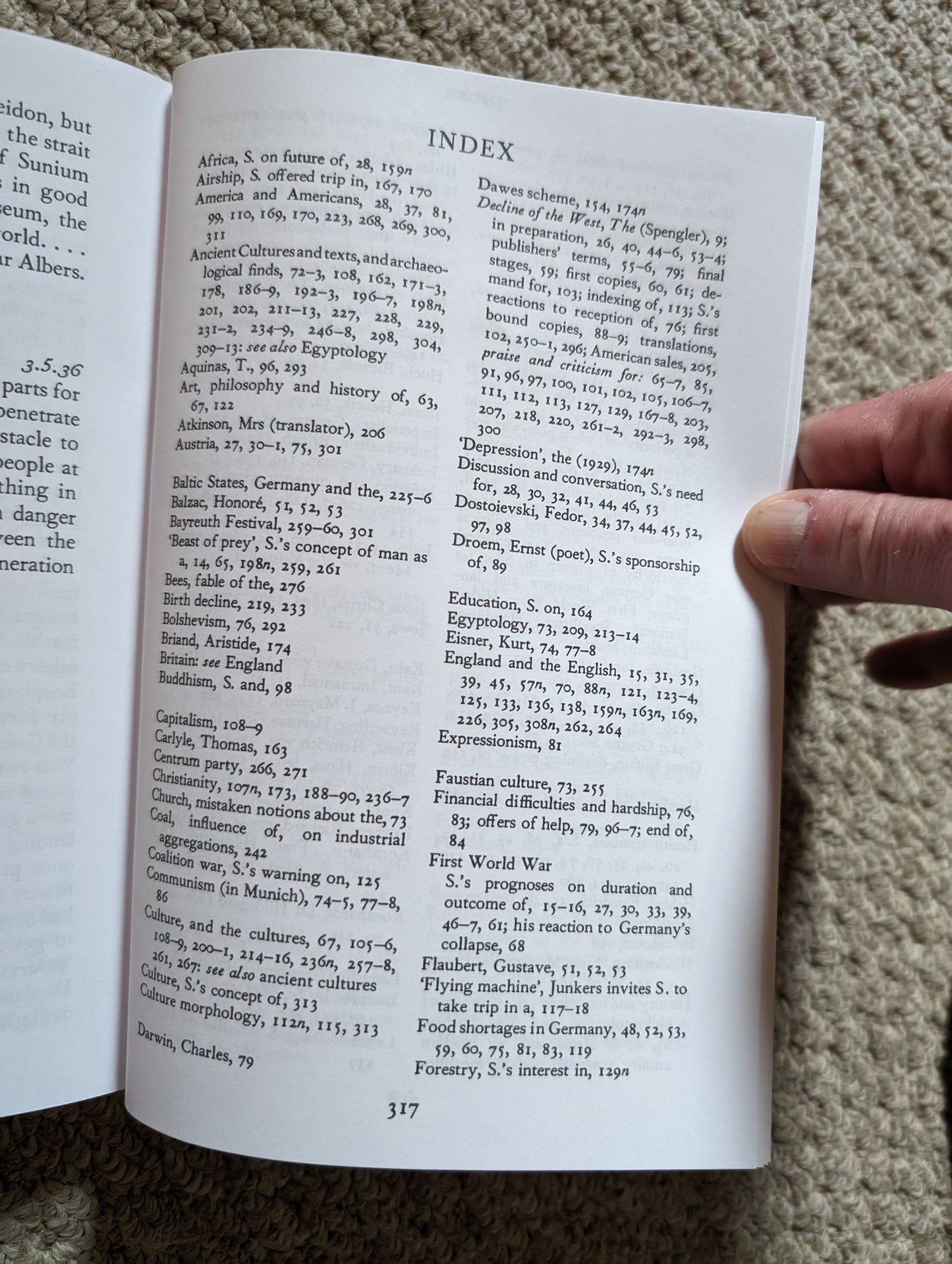1
/
of
6
Obscure Books
Spengler Letters, 1913-1936 by Oswald Spengler
Spengler Letters, 1913-1936 by Oswald Spengler
Regular price
$30.00 USD
Regular price
Sale price
$30.00 USD
Unit price
/
per
Couldn't load pickup availability
This is a facsimile reprint of an exceedingly difficult book to find.
Oswald Spengler, the metaphysician who asserted that man is a beast of prey, was Germany's greatest philosophical writer in the period between the wars. He died in 1936. His masterpiece, The Decline of the West, is still one of the great contributions to the philosophy of history.
He was a voluminous correspondent, and although he destroyed many of his letters thoughtlessly, and destroyed many more to prevent dangerous material from falling into Hitler's hands, there is still a massive collection, from which this book is a selection. The selection has been made with a view to characterizing Spengler as a man, or illustrating his intellectual development and political activity, or throwing light on the history and psychology of his time. But especially do they describe, unintentionally as it were, how Germany fell into the state of misery and confusion which produced Hitler. Spengler was a Conservative of the deepest dye and a firm believer in government by a benevolent oligarchy. His letters show him trying to throw some of the blame for the Central European debâcle on Britain, saying that although the English, unlike Continentals, believe in the principle of fair play, they refuse to be bothered by foreign politics and nothing will distract them from money-making and sport unless they see a threat to themselves in the immediate offing.
Most anxious to convince himself that he was more than a literary man, he tried to take a leading part in dragging his country back from the abyss. He failed, and went back to his old love, proto-history. He returned to politics with a last fling at the Nazis, and if he had not died in 1936, would in all probability have ended his life in exile or in a concentration camp.
This book casts much light on the man and his books, and on the period which preceded them both.
Share

